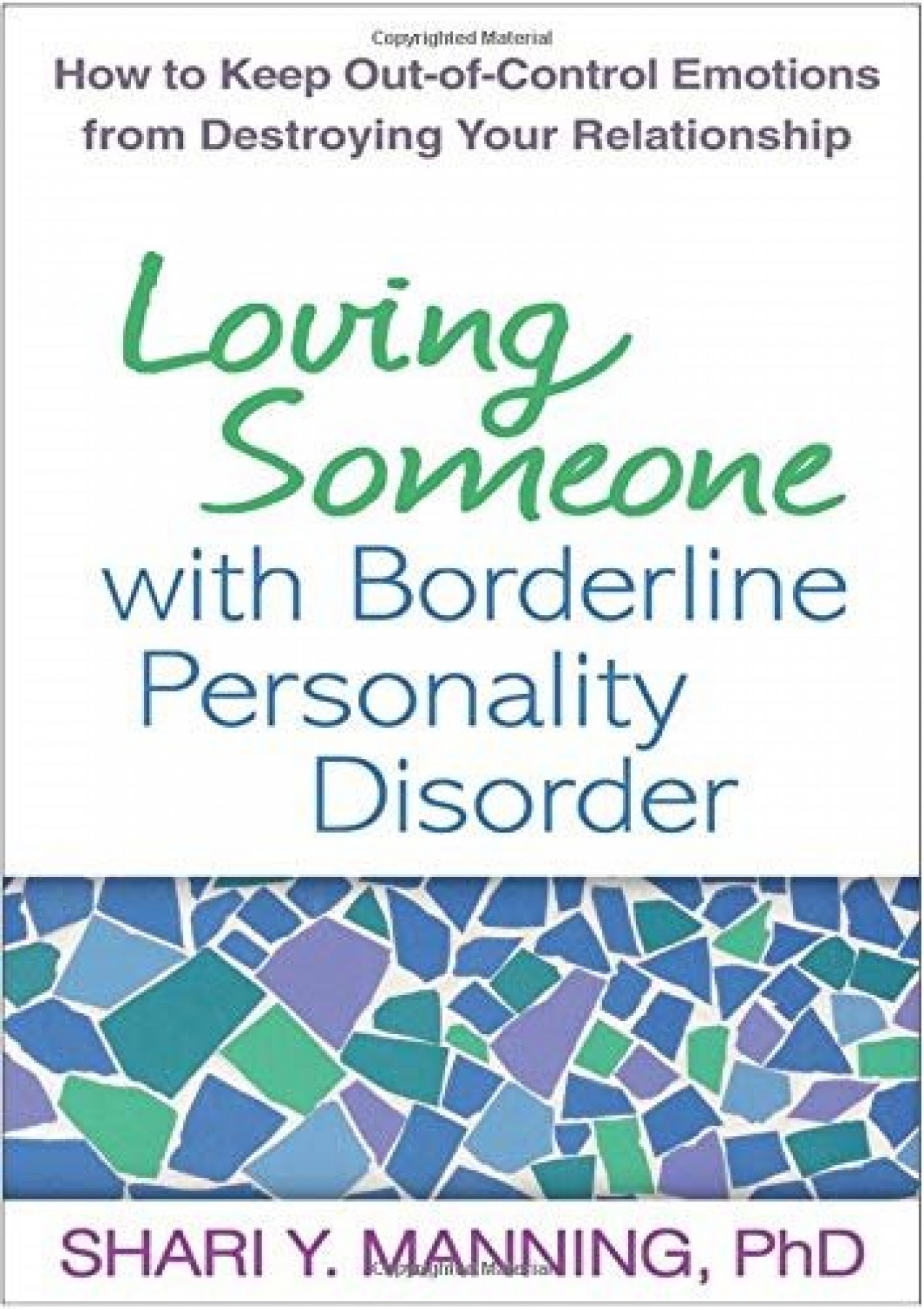Borderline personality disorder (BPD) is a psychiatric diagnosis associated with serious forms of self-harm. It can also manifest as angry outbursts and verbal abuse, binging/purging, drug/alcohol abuse, and suicidal behaviour.
Because of their extreme emotional sensitivity and reactivity, people with BPD often have intense and tumultuous relationships with those around them. Borderline behaviour can be particularly hard to understand and friends and family can often feel frustrated, overwhelmed and confused.
This book provides those close to someone with BPD a compassionate insight into their loved one’s out-of-control emotions. Author Shari Y. Manning, PhD, offers practical, step-by-step strategies for readers to help their loved one and themselves.
Due to the nature of BPD, well-meaning partners, family and friends can find that their own responses to the disorder are often ineffective and can even be harmful. Readers are shown what they can do differently to support someone with BPD, while caring for their own mental, physical and emotional wellbeing.
One of the most effective treatments for BPD is Dialectical Behavioural Therapy (DBT). Manning, a clinician, is a proponent of leading BPD expert and DBT originator Marsha Linehan.
Manning has focused on the treatment of people with BPD since 1993.This is the first book written specifically for friends and family that is grounded in DBT techniques. This is not a clinical text and Manning outlines the concepts of DBT in a way that a lay-person can understand.
Some of the DBT skills discussed include mindfulness, emotional regulation, crisis survival, reality acceptance and interpersonal skills.
Another important technique highlighted is the importance of validating someone with BPD’s emotional distress. Acknowledging that they are upset or feeling bad can help to reduce the intensity of their emotions. It also counters with what NOT to do, such as telling the person to calm down, thereby invalidating how they feel which is likely to make their emotional arousal go up instead of down.
Other unhelpful responses include telling the person how they should be feeling; jumping in to problem solve without being asked, and saying that you understand how they feel when you don’t.
How to respond to crisis situations, such as suicidal behaviour, are also addressed. Helpful techniques include: telling your loved one how much their suicide would affect you; acknowledging that the person’s pain is real and expressing that you have hope for the person even if they currently feel hopeless themselves.
BPD can occur in different degrees on a spectrum, with some people appearing quite high functioning and competent in many areas of their life. Some readers with a lesser degree of BPD may not be able to relate to some of the behaviours described in the book. On the other hand, the book doesn’t provide advice on how to manage more extreme behaviours such as rage and physical attacks.
The book’s advice on interpersonal skills and techniques such as validation would benefit many people interested in improving their communication skills, not just those with BPD in their lives. It provides an easy-to-understand overview of DBT and a compassionate and empathic insight into Borderline Personality Disorder.
Reviewed by Karen Issell, volunteer for the Information Service at the Mental Health Foundation
I Need Help Now
Help for you or someone important to you
More

